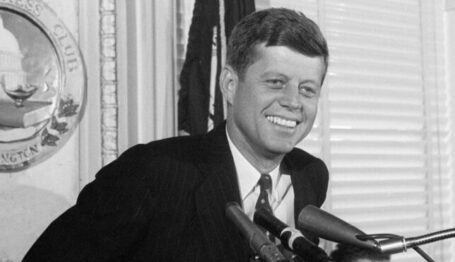Labor Watch
The NLRB Targets the American Dream
Unions work to erase the distinction between mom-and-pop businesses and giant corporations
The National Labor Relations Board is poised to scrap the long-held legal definition of a joint employer, which has allowed business sectors—including the franchise industry—not only to thrive in recent decades but also to bounce back more quickly from the Great Recession than other segments of the economy. Given the employee turnover in many franchises, unions see aggressive action by the NLRB as a chance to expand membership rolls and generate revenues from dues that will support unions’ activist political agendas. But an array of business groups warn that changing the meaning of joint employer could bankrupt many small businesses and imperil the creation of the very jobs that represent an entry point for millions of the country’s workers.
If you’ve taken your car to Jiffy Lube, stayed at a Choice Hotel, or ordered a pizza from Papa John’s, you’ve most likely patronized a business built on the franchise model. From KFC, Wendy’s, Arby’s, and Dairy Queen, to Planet Fitness, Ace Hardware, Supercuts, RE/MAX, and H&R Block, franchises are at the heart of small business in America.
Despite the strong national brand identification associated with these names, they are actually part of the small business mosaic of America. Franchisees are independent business people, running their own shops under the marquee of a brand customers that know and trust, often actually located on Main Streets across the country.
Franchises give small businesses, many of them family businesses—literally “mom-and-pop operations”—the opportunity to take advantage of national brand-name recognition and advertising, supply networks, business expertise, and other advantages that would otherwise be available only to the big guys. Many franchise operators are the first in their families to run businesses, and many are immigrants or members of “minority” groups.
There’s a world of difference between a local franchise business and a multinational corporation. The point seems so obvious it should hardly need to be made.
Yet a series of developments in federal labor law is lumping these two classes of businesses together in a way that could imperil some of the 8.9 million jobs the franchise industry provides in this country.
In addition, the new rules could lump subcontractors in with the companies that hire them to perform such services as waste disposal and recycling, office cleaning, clothes cleaning, security, parking services, and photocopying.
What’s a “joint employer”?
The definition of “joint employer” is at the heart of separate-but-related rulings that have been issued, or are expected to be issued, regarding union-backed actions against the world’s largest restaurant chain (McDonald’s USA) and a Houston-based waste disposal company (Browning-Ferris). In the McDonald’s case, a majority of the five-member National Labor Relations Board is poised to comingle independently owned franchises with their corporate brands, linking them together as joint employers. In the Browning-Ferris case, the NLRB would apply that idea to subcontractors, linking them to the businesses that hire them. [For the rest of the article, click HERE.]



